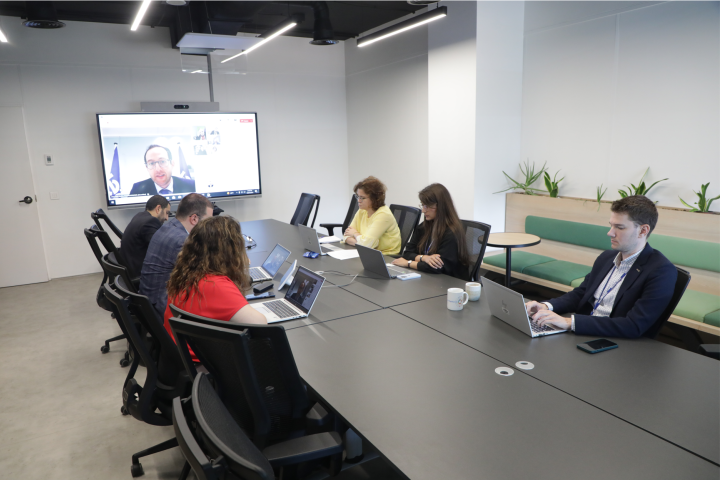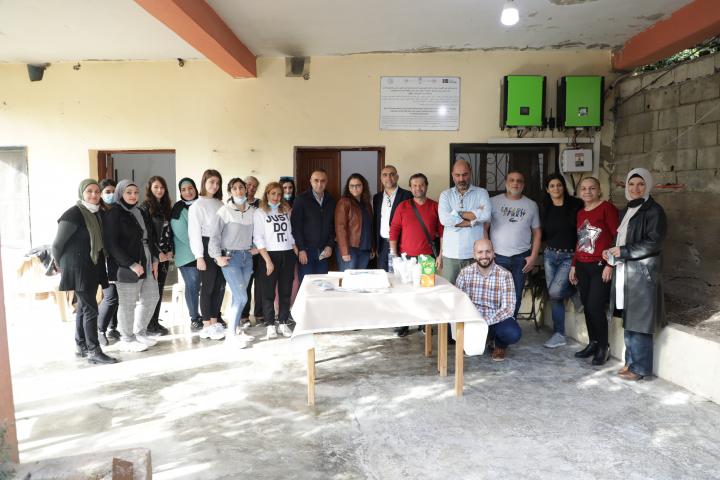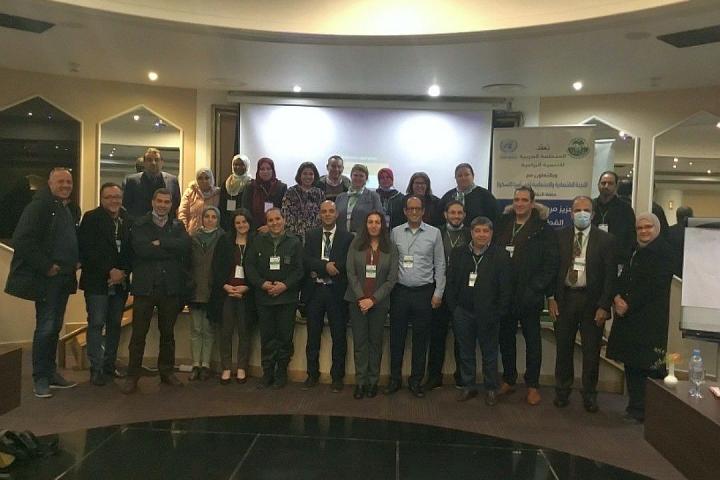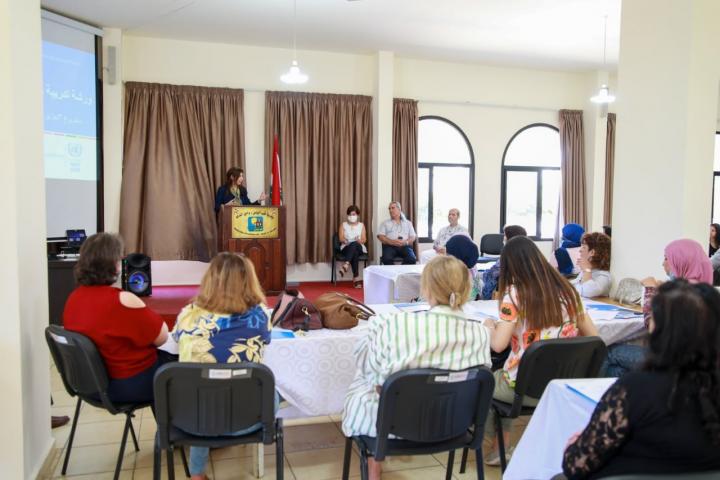“ESCWA supports its member States in meeting their ambitious commitments to implement the 2030 Agenda for Sustainable Development through regional initiatives and capacity building programs built on research, science-policy interface, knowledge exchange and dialogue,” said Roula Majdalani, the Director of the Sustainable Development Policies Division of ESCWA.
Ms. Majdalani was speaking from the UN regional commission’s headquarters in Beirut, Lebanon, where the “Arab Preparatory Meeting on Energy related Issues” took place on 27 and 28 March, in collaboration with the League of Arab States (LAS).
The meeting aimed to facilitate stocktaking of progress at national and Arab regional levels towards achieving the 2030 Agenda, to provide inputs to the 2018 Arab Sustainable Development Forum (AFSD) happening at ESCWA in April, which then feeds into the High Level Political Forum (HLPF) in July, where the stand-alone Sustainable Development Goal (SDG) on energy will be reviewed in-depth for the first time. SDG7 calls to ensure access to affordable, reliable, sustainable and modern energy for all.
“How can we best position energy issues within the 2018 HLPF,” Ms. Majdalani asked the meeting participants, who stem from a variety of fields and backgrounds that address energy issues in an inter-related way. “How do we best position the Arab region in this debate?”
These questions were the foundation of the two-day dialogue that explored the links between energy and other areas such as water, food, climate change, and economic growth. Participants assessed the gaps between policies in place today and the targets set by the global community in 2015 to reach a sustainable future. They also debated how to stimulate and mobilize national financial resources and attract international financing and access to technology.
In addition, ESCWA launched the “Arab Region Progress in Sustainable Energy: Global Tracking Framework Regional Report” which reviews progress in the past decades in the area of sustainable energy management. These findings, along with the outcome document from the consultations, will be presented at the Arab Forum in April.
“In the field of electricity and energy, the Arab Ministerial Council for Electricity was interested in widening the scope of the Arab strategy to develop the uses of renewable energy,” said Jamila Youssef Matar, the Director of Energy Management at the League of Arab States, in her opening remarks, noting that this strategy was adopted by the Arab Economic, Social and Development Summit held in Riyadh in 2013.
Highlighting the goals of this strategy which focus on improving the sustainable development of the Arab Energy System, she said: “It guarantees that all segments of society have easily access to modern energy services in addition to adopting efficient procedures to orient the use of energy and improve its competency.”
The first session of the meeting on “Achieving Sustainable Energy in the Arab Region: Progress, Challenges, and Opportunities,” featured a briefing by Radia Sedaoui, the Chief of the Energy Section at ESCWA, who presented key findings of the “Global Tracking Framework Regional Report-Arab Region Progress in Sustainable Energy.”
Ms. Sedaoui highlighted the importance of sustainable energy systems, especially to meet the expectations of the overwhelmingly young populations in terms of economic opportunities and improving living standards. She noted a near-universal access to modern energy but very slow progress in energy efficiency and a marginal role of renewable energy.
She underlined that many countries in the region are not able to provide adequate energy services to a significant portion of their population and that renewable energy is still a largely untapped resource despite recent efforts involving several Arab countries.
To hear perspectives from youth, who are invaluable mobilizers and modernizers, ESCWA invited nine students from the Notre-Dame de Jamhour school in Beirut to attend the meeting. One of their class projects is focusing on sustainable development issues, particularly natural resources.
“What interested me the most in the discussions was the main grid of energy between the Arab States which could help countries distribute and divide energy in a more efficient way,” said Karim Ashkar, one of the students.
In turn, fifteen-year-old Anna Abou Adal expressed her concern over the alarming numbers in the Arab region related to energy spending and said she hopes Arab countries will invest in initiatives that can develop sustainable solutions.
To lead by example, the students will be launching an awareness campaign in their school, adapted for each grade level, to continue the debate on how energy resources can make their future more safe and prosperous.
Meanwhile, the theme the 2018 Arab Forum for Sustainable Development in April is “Natural Resources, Future Generations and the Common Good,” where youth are expected to continue to contribute to the United Nations’ Agenda by sharing their ideas on how to ensure no one is left behind.
*****
For more information:
Nabil Abu-Dargham, Head, ESCWA Communication and Information Unit
+961-70-993-144; email: dargham@un.org
Ms Rania Harb +961-70-008-879; email: harb1@un.org
Ms Myrna Mahfouz: +961-70-872-372; email: mahfouz@un.org
Mr Haidar Fahs: +961-70-079-021; email: haydar.fahs@un.org



